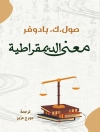The binary construction of »young« and »old«, which is based on a biogerontological model of aging as decline, can be redefined as the ambiguity of aging from a cultural studies perspective. This concept enables an analysis of the social functions of images of aging with the aim of providing a basis for interdisciplinary exchange on gerontological research.
The articles in this publication conceive the relationship between living and aging as a productive antagonism which focuses on the interplay between continuity and change as a marker of life course identity: aging and growing older are processes which cannot be reduced to the chronology of years but which are shaped by the individual’s interaction with the changing circumstances of life.
เกี่ยวกับผู้แต่ง
Ulla Kriebernegg is the director of the Center for Interdisciplinary Research on Aging and Care (CIRAC) and an associate professor of American Studies at Universität Graz in Austria. In her research and teaching she focuses on North American literary and cultural studies, aging and care studies, and health humanities. She has taught internationally and has won several teaching and research awards.
Roberta Maierhofer is a professor of American studies and director of the Center for Inter-American Studies at Universität Graz, Austria. Her research focuses on (Inter)American literature and culture, gender and age/aging.












